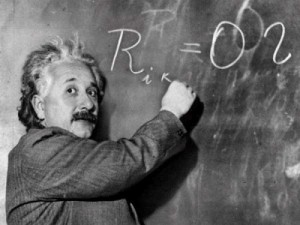 We all like control. We get to control what we pay attention to, where we put our focus. We forget sometimes with all the information available to us through media that we do not have to listen to and read everything that crosses our screens. The same goes for the rest of our lives – we get to set our focus as clearly as we want. Ask yourself, ‘What means the most to you? What do you care the most about? What is most relevant to your work, your customers, and the rest of your life?’ Those are the things that should be getting our focus.
We all like control. We get to control what we pay attention to, where we put our focus. We forget sometimes with all the information available to us through media that we do not have to listen to and read everything that crosses our screens. The same goes for the rest of our lives – we get to set our focus as clearly as we want. Ask yourself, ‘What means the most to you? What do you care the most about? What is most relevant to your work, your customers, and the rest of your life?’ Those are the things that should be getting our focus.
The ultimate example of focus can be found in the life of Einstein. Usually I immediately shut down when someone speaks about mathematics or science theories. But I respect Einstein’s focus and passion to innovate.
In Switzerland, Einstein became convinced that if he applied a “new” math studied by Marcel Grossman to his own work on relativity, he could generalize the theory to explain gravity. This advance would be huge.
Einstein set to work.
Between 1912 to 1915, he became increasingly obsessed in his push to formalize general relativity. He worked so hard that his marriage became strained and his hair turned white from the stress.
But he got it done. In 1915 he published his full theory. It stands as one of the greatest scientific accomplishments — if not the single greatest — of the 20th century.
Einstein’s push explains a lot about accomplishment. We are most productive when we focus on a very small number of projects on which we can devote a large amount of attention. Achievements worth achieving require hard work. There is no shortcut or cheating here. Be it starting up a new club or starting a new business, eventually, effort, sustained over a long amount of time, is required.
In a perfect world, we would all be Einsteins. We would each have only one, or at most two, projects in the three major spheres of our lives: professional, extracurricular, and personal. And we would be allowed to focus on this specialized set, in exclusion, as we push the projects to impressive conclusions.
But this doesn’t happen…
Our problem is that we don’t know in advance which project might turn out to be our ‘theory of relativity’ and which are duds. Because of this, most ambitious people I know, myself included, follow a different strategy. We plant a lot of project seeds. We e-mail a lot of people, join a lot of clubs, commit to a lot of minor projects, set up lots of meetings, constantly send out feelers to friends and connections regarding our latest brainstorm. We don’t know which seed will ultimately take root and grow, so, by planting many, we expose ourselves to enough randomness, over time, to maximize our chance of a big deal, interesting, life-changing success eventually happening.
These numerous seeds, however, have a tendency to transform into weeds. While some of them clearly grow into pursuits worth continuing, and others die off quickly.
These weed projects violate the Einstein principle. Accomplish More by Doing Less – It worked for Einstein.
Jake is a former boy scout, and a man with a dream. A dream that involves mostly nachos and sports cars, but a dream nonetheless. He has been involved in the banking and construction sector most of his life, and is the founder of Titan Restoration, focusing on emergency water mitigation.



